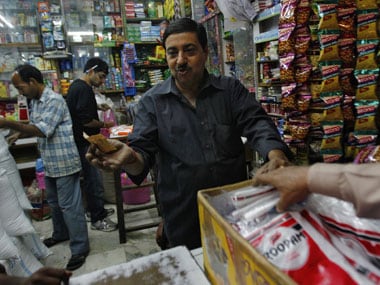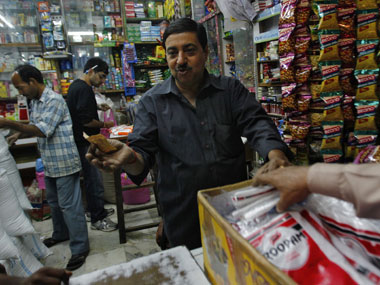Retail stocks opened down by as much as 10 percent 10 percent on Monday after reports said the government had paused plans to open up the country’s $450 billion retail sector to foreign supermarkets.
Shares in Pantaloon fell 10 percent, while shares in Shopper’s Stop dropped 9 percent, Trent, the retail arm of the Tata Group conglomerate, slid as much as 4 percent.
Most of the retailers were looking forward to funds from international players as their current financials arestretched. Incremental money was needed to bail the companies out of their working capital issues. Most of the listed players, in the greed to capture retail market share, blocked up their short term funds by investing in long term-assets like real estate. Caught in a debt trap, they were looking at foreign direct investment to bail them out of their miseries.Even a pause in FDI can bedisastrousfor some of the retailers who are running short of time to meet theircommitment.
The beleaguered government paused its plans to open up the sector due to strong opposition from both inside and outside the ruling coalition, a senior government source said on Sunday, a day after a key ally said she had been promised the policy would be put on hold.
[caption id=“attachment_147938” align=“alignleft” width=“380” caption=“Retail stocks opened down by as much as 10 percent 10 percent on Monday after reports said the government had paused plans to open up the country’s $450 billion retail sector to foreign supermarkets. Reuters”]
 [/caption]
[/caption]
The move to allow global giants such as WalMart into India’s $450 billion retail market, the first major economic reform since Prime Minister Manmohan Singh’s graft-riddled term began in 2009, has been met with fierce opposition from some who say it will destroy the livelihood of millions of small traders.
“This is a pause,” said the government source with knowledge of the matter. “Do not see it as a rollback, as if the government is giving up on it. This is just a small pause.”
The idea appears to give the under-fire ruling party time to gain the support of its key coalition allies.
“Parliament needs to get going again. There is so much that the government needs to do,” the source added, a day after the government’s biggest ally said the policy was being sidelined due to disagreement within the ruling coalition.
Any postponement or watering down of the policy would be a huge embarrassment for Singh’s government, which has failed to pass any big-ticket economic reforms as it struggles with allegations of widespread graft.
Singh has lost much of his credibility as the reformer who turned India from near-bankruptcy 20 years ago to an economic wonder. Foreign investors are seen spooked by a growing sense of policy paralysis that Asia’s third-largest economy can ill-afford as once-booming GDP growth begins to temper.
The government was likely to release an official statement regarding the issue on Monday, said the source, who was not permitted to speak to the media.
Allowing foreign direct investment into a retail industry dominated by small shops was trumpeted by Congress as a policy that would help ease stubbornly high inflation, improve supply-chain infrastructure, and create millions of jobs.
With inputs from Reuters
)